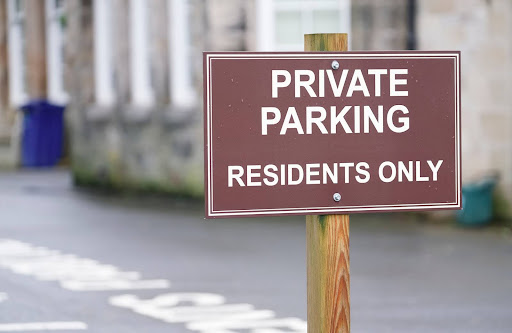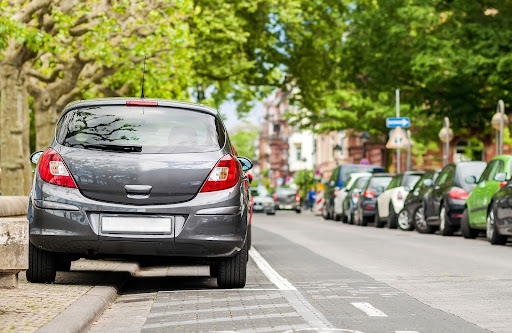A homeowners association without clear HOA parking rules can quickly become disorganized and aesthetically unappealing. After all, parked cars can become an eyesore if there are too many or if the cars are parked in the wrong places. Communities should carefully create and enforce their parking rules to ensure order.
Common HOA Parking Rules Your Community Can Adopt
What HOA parking rules can your community adopt? Here are the most common rules homeowners associations can consider.
1. Restrictions on Vehicle Type
Many homeowners associations will restrict the type of vehicles residents can park. HOAs often prohibit large, bulky vehicles such as trucks, RVs, campers, trailers, and boats. They may also ban vehicles with commercial signs from parking on the premises.
Associations restrict these vehicle types for one simple reason: they reduce the community’s aesthetic appeal. This might seem trivial to some homeowners, but it’s essential for maintaining curb appeal and preserving property values. It also negatively impacts a community’s overall reputation.
2. Parking Location

Can an HOA restrict street parking? What about HOA driveway rules wherein the association prevents homeowners from parking in their driveway? Often, homeowners will conflict with the HOA because of restrictions on parking location. However, HOAs are generally allowed to restrict where people can park.
On the other hand, it’s important to note that HOAs can only regulate parking on private streets. They do not have authority over public streets. Only law enforcement may penalize a homeowner who parks on a public road.
Apart from regulations on HOA parking on the street, associations can also regulate driveway parking or parking in front of a house. Typically, they restrict the type of vehicle that is allowed on driveways. However, some associations may prohibit driveway parking altogether and force residents to park in their garages or designated parking spaces.
In addition, there may be HOA guest parking rules that dictate where visitors can park. Some communities may have dedicated guest parking, while others allow guests to park in front of homes.
3. Parking Duration
Homeowners associations may limit parking duration for residents and guests. For example, an HOA with a common parking lot might allow vehicles to park in a space for only 24 hours. Homeowners who park beyond 24 hours may receive violation notices and penalties.
In some cases, homeowners associations may allow parking within certain timeframes. For example, parking in designated areas may be allowed only from 10 a.m. to 10 p.m. Regardless, these parking restrictions exist to prevent homeowners from abandoning their cars for long periods.
4. Parking Registration
Communities can avoid HOA parking problems by creating a car registration system. Homeowners and guests must then register their vehicles with the HOA. By registering their cars, homeowners and guests can stay updated on how long they have left to stay parked at a designated space. Parking registration is also more secure as it can reduce suspicious activity in the community.
5. Number of Parked Cars
HOAs cannot prevent homeowners from buying more cars, but they can restrict how many cars they can park in the community. Typically, HOAs will restrict the number of allowable parked cars to two. They will have to find other parking spaces for any additional cars. This type of restriction is more common in certain communities, such as condominiums.
How to Enforce HOA Parking Rules
Homeowners association parking rules can be difficult to enforce, but it’s not impossible. Here are some ways an HOA can enforce its parking rules.
1. Create a Clear HOA Parking Policy
Firstly, it’s important to create an unambiguous parking policy. The rules must be simple and easy to follow so homeowners don’t have trouble following the rules. For example, a rule that says guests must move their vehicles every 48 hours is unclear and hard to enforce. Instead, consider a rule that says each home can have 48 hours of free guest parking monthly.
2. Post Signs
HOA parking enforcement can be made easier with clear signage. Remember to post signs about the parking rules in high-traffic areas or places where homeowners usually park.
For example, it’s often helpful to post signs in parking lots or on street posts. You can post the rules there if the HOA has a bulletin board or website. Furthermore, homeowners associations can paint signage on the floors to designate parking spaces or indicate “no parking” areas.
3. Send Violation Notices

Generally, a homeowners association needs to send an HOA parking violation notice to homeowners who violate parking rules. Some homeowners may not even know they’re violating the rules, so a warning is often enough to prevent a second offense. It’s a good way to ensure compliance without escalating the issue.
4. Impose Penalties
Homeowners associations may be able to enforce the rules by penalizing offending residents. Penalties can be monetary or in the form of suspensions. The HOA may revoke a homeowner’s rights and privileges for repeated or serious offenses. However, it’s essential for HOA boards to check their governing documents to verify whether they have the authority to impose this type of penalty.
5. Use Towing
As a last resort, homeowners associations may tow vehicles that violate the rules. HOAs should reserve this method for serious offenses or repeated violations as it creates more conflict within communities. The board should also check state law and the governing documents to see whether they can do this. Otherwise, it can lead to liability.
Generally, HOA boards must send violation notices 96 hours before they tow the vehicle. Afterward, the board can send a written authorization letter to a towing operator. The HOA should also inform the homeowner of the tow one hour after it is authorized. Moreover, they must report the towing to local traffic enforcement.
Keeping Your Community in Order
Homeowners associations must outline HOA parking rules to keep the community in order. Haphazard parking can affect curb appeal and be dangerous if a homeowner parks in front of a fire hydrant or entryway.
If your community needs help implementing parking rules, you may need professional assistance. Landmark Community Management offers outstanding management services to HOAs. Call us now at 512-569-5527 or contact us online to learn more!
RELATED ARTICLES:


